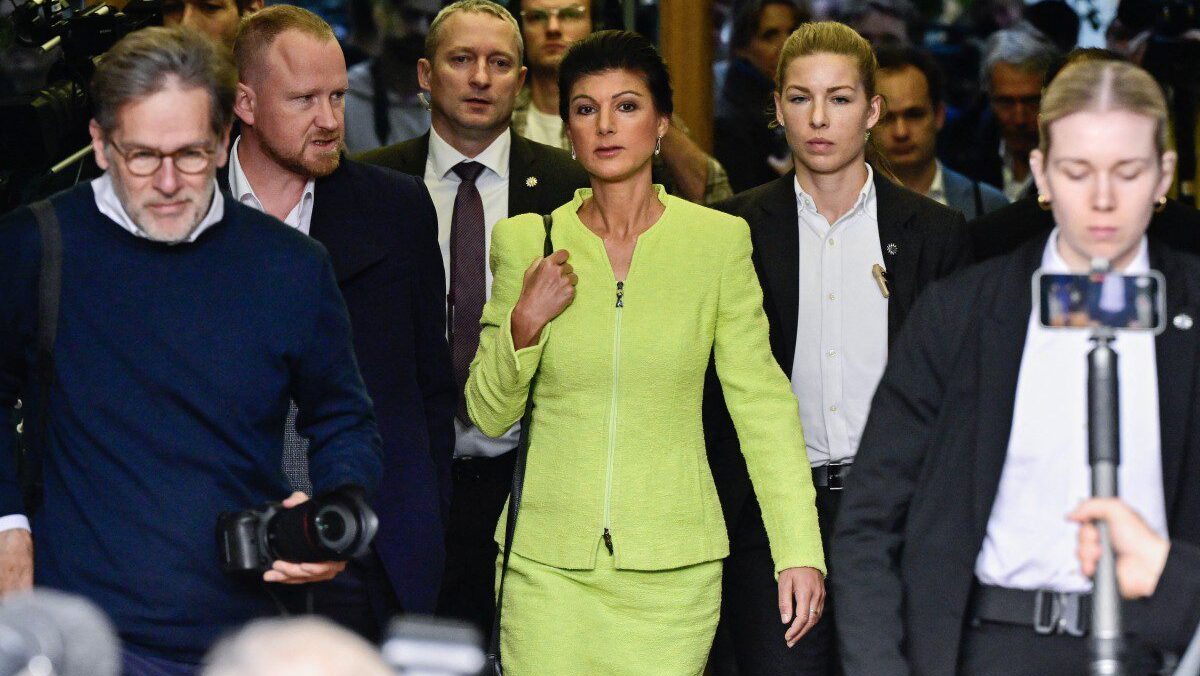
Sahra Wagenknecht
Photo: John MACDOUGALL / AFP
The Sahra Wagenknecht Alliance for Reason and Justice (BSW), set to be formally established as a political party at the beginning of next year, has already come under fire from the German mainstream press for depositing donations, a miniscule percentage of which came from abroad, in a bank with alleged links to Russia.
Wagenknecht’s BSW association, since its founding was announced in late October following the departure of the anti-liberal Left wing firebrand, along with nine MPs, from Die Linke, has received some 1.1 million euros in donations, including some larger donations of 50,000 and 20,000 euros.
Ralph Suitkat, the treasurer of the association, confirmed to Bild am Sonntag that of the 1.1 million euros donations received, 17,000 euros, around 1.5% of the total donations, came from countries outside of the European Union. Of that sum, €7,086 came from the United States and €75 came from Russia, Suitkat told the newspaper in response to an inquiry.
“We would like to credibly assure that the U.S. donations do not make us Biden fans and the 75 euros do not make us friends of Putin either,” he said. Suikat stressed that the alliance is behaving in accordance with the regulations of the party law and therefore does not accept individual donations from abroad of over 1,000 euros.
The bank Wagenknecht and her team have entrusted to hold the association’s funds, Volksbank Pirna in the eastern German state of Saxony, has aroused the interest of certain people and groups.
Critics say the choice is not a coincidence. “For many years, the bank has attracted attention with its political involvement, which is unusual for a German bank: in 2017, it organized a Christmas reception together with the Left Party. CEO Hauke Haensel […] was a welcome guest at the Left Party’s New Year’s reception,” writes Bild am Sonntag.
For whatever reason, that appears not to have been widely reported on by the German press at the time, and raises suspicions why it is so concerned with Wagenknecht’s dealings with the bank now.
According to reports from German news outlets Tagesspiegel and Correctiv, both the Marxist-Leninist Party of Germany and right-wing Pegida have fundraising accounts at Volksbank Pirna. Likewise, the video agency Rupty, owned by the Russian media company TV-Novosti which has been on the European Union’s sanctions list since 2022 used the bank as well. The bank’s CEO of more than 20 years, Hauke Haensel, according to his own statements maintains close contacts with Russia, AFP reported.
The BSW, however, maintains that it chose the Volksbank Pirna because Wagenknecht did not want “a large bank with call centers” and was aiming for “decentralization.”
It is worth considering that Germany’s entrenched establishment—much like the establishment in the United States—has long accused its political challengers, often without evidence, of colluding with Russia as a political smear tactic.
